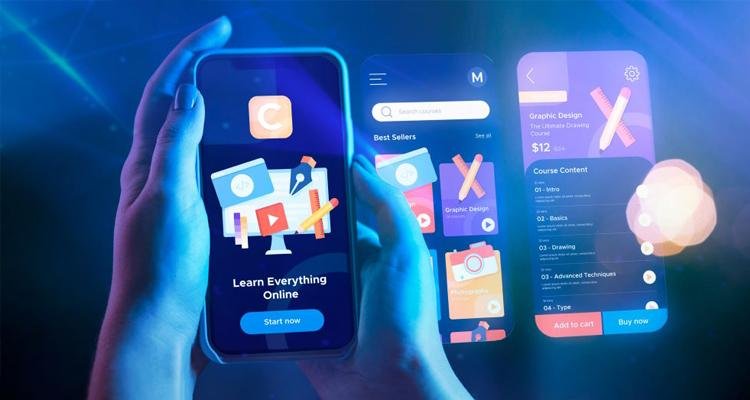Development Directions: Emerging Trends in Mobile Apps

Emerging technology and shifting consumer needs are driving the ongoing growth of the mobile app market. To stay competitive in this ever-changing world, developers and companies need to adjust to these developments. The following major factors will influence how mobile app development develops in the future:
1. Super Apps’ Rise
Consider a single app that integrates grocery shopping, flight reservations, food delivery, and money management into a smooth experience. Known as the “Super App,” this idea is becoming more and more popular, particularly in Asia. Super applications provide users unmatched ease by combining several functions.
Impact: Companies will probably work together to develop new mega app experiences or incorporate their services into already-existing ecosystems.
2. Machine Learning and AI
Machine learning (ML) and artificial intelligence (AI) have evolved from trendy terms to crucial elements of mobile applications. By using natural language processing, fraud detection, and personalized suggestions, these technologies improve user interactions.
Impact: Anticipate more intelligent applications that anticipate user demands and provide highly customized experiences by learning from user behavior.
3. Integration of IoT
As the Internet of Things (IoT) grows, mobile applications are taking over as the main interface for controlling wearables, connected cars, and smart homes. The boundaries between the real and virtual worlds are blurred by this convergence.
Impact: In order to ensure security and interoperability, developers must design applications that interface fluidly with a variety of IoT devices.
4. 5G Internet Access
5G technology’s introduction is revolutionizing mobile experiences by providing reduced latency and quicker throughput. This development opens the door to creative uses like real-time video streaming and augmented reality.
Impact: By creating resource-intensive apps that were previously unthinkable, developers can push the frontiers of creativity.
5. The Metaverse
The way we engage with technology has fundamentally changed as a result of the metaverse. It promises immersive experiences that combine the virtual and physical worlds, despite its early stages.
Impact: In order to access and navigate these virtual worlds, mobile apps will be essential, which will spur the creation of innovative user interfaces.
6. PWAs, or progressive web apps
Progressive online Apps blend the capabilities of native apps with the reach of online apps. They are very accessible because they load rapidly, function offline, and don’t need to be installed.
Impact: Since PWAs are less expensive than developing native apps, more companies are probably going to use them.
7. Platforms with Low-Code/No-Code
People with little to no coding experience can now create useful apps thanks to the emergence of low-code and no-code platforms.
Impact: By enabling companies to shorten development schedules and expenses, this trend promotes innovation.
8. Security Issues
Security risks rise along with the use of mobile apps. Because malware attacks and data breaches are always changing, strong security measures are crucial.
Impact: By incorporating encryption and multi-factor authentication, developers must give security top priority throughout the app lifecycle.
In conclusion, adopting these trends is necessary to stay ahead of the curve in the mobile app market and satisfy customer demands while maintaining functionality and security.
Content written by-Gunjan
Gunjan is part of the expert content marketing team at ITCombine. She has an expertise of curating meaningful information that can be used by visitors in general. Gunjan is also involved in creating Client specific stories and blogs.
Copyright © 2025 - itcombine.com.
All Rights Reserved.








